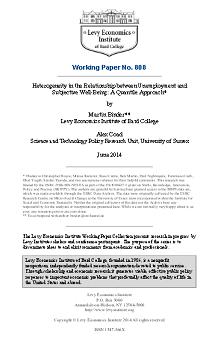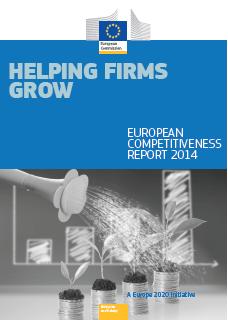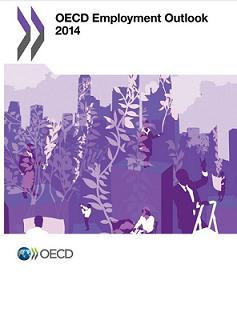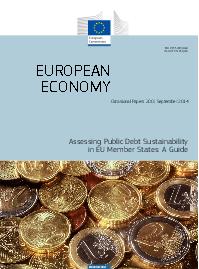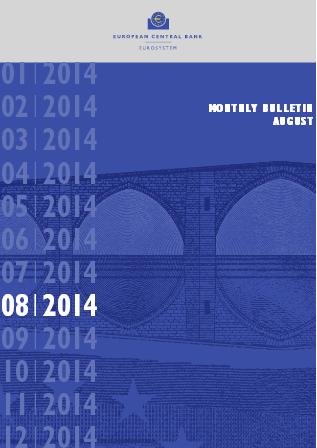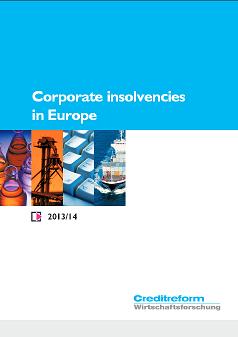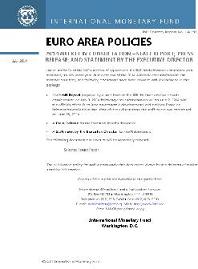Binder, M. & Coad, A. (2014) “Heterogeneity in the Relationship between Unemployment and Subjective Well-Being, A Quantile Approach“, Explorations in Theory and Empirical Analysis, Working Paper No. 808, Levy Economics Institute, June. Unemployment has been robustly shown to strongly decrease subjective well-being (or “happiness”). In the present paper, we use panel quantile regression techniques in order to analyze to what extent the negative impact of unemployment varies along the …Read More
Monthly Bulletin: September
European Central Bank (2014) Monthly Bulletin: September, ECB–Eurosystem, September. Based on its regular economic and monetary analyses, the Governing Council decided at its meeting on 4 September 2014 to lower the interest rate on the main refinancing operations of the Eurosystem by 10 basis points to 0.05% and the rate on the marginal lending facility by 10 basis points to 0.30%. The rate on the deposit facility was lowered …Read More
European Competitiveness Report 2014
European Commission (2014) European Competitiveness Report 2014, Commission Staff Working Document SWD(2014)6319 final, Σεπτέμβριος. The European Competitiveness Report, published annually since 1997, gives a quantitative assessment of the competitive performance of EU industries. It contributes to evidence-based policy-making by looking at knowledge gaps in industrial policy. Therefore it supports microeconomic decision-making at EU and national levels. The Report uses empirical research to examine EU competitiveness, working across the whole …Read More
OECD Employment Outlook 2014
OECD (2014) OECD Employment Outlook 2014, OECD Publishing. The 2014 edition of the OECD Employment Outlook reviews recent labour market trends and short-term prospects in OECD and key emerging economies. It zooms in on how the crisis has affected earnings, provides country comparisons of job quality, examines the causes and consequences of non-regular employment, and estimates the impact of qualifications and skills on labour market outcomes. How does GREECE …Read More
The Global Competitiveness Report 2014–2015
Schwab, K. (2014) “The Global Competitiveness Report 2014–2015“, World Economic Forum, 03 September. The Global Competitiveness Report 2014-2015 assesses the competitiveness landscape of 144 economies, providing insight into the drivers of their productivity and prosperity. The Report series remains the most comprehensive assessment of national competitiveness worldwide.
Assessing Public Debt Sustainability in EU Member States: A Guide
Berti, Κ. & Carone, G. (2014) “Assessing Public Debt Sustainability in EU Member States: A Guide“, European Economy, Occasional Papers, 200. August 2014: Brussels. Analysing recent and prospective public debt developments and risks to debt sustainability is crucial for EA countries and the EU as a whole to be able to formulate appropriate policy responses. To this aim, the Commission services (Directorate General for Economic and Financial Affairs) conduct, …Read More
Monthly Bulletin
European Central Bank (2014) “Monthly Bulletin“, ECB Eurosystem, August. Based on its regular economic and monetary analyses, the Governing Council decided at its meeting on 7 August 2014 to keep the key ECB interest rates unchanged. The available information remains consistent with the Governing Council’s assessment of a continued moderate and uneven recovery of the euro area economy, with low rates of inflation and subdued monetary and credit dynamics. …Read More
Corporate Insolvencies in Europe, 2013/14
ICAP (2014) “Corporate Insolvencies in Europe, 2013/14“, Creditreform, Wirtschaftsforschung, July. The great European economic crisis: For five years now, it has had the continent firmly in its grip. Recently, though, there were optimistic signs when Greece and Portugal succeeded for the first time in ages in placing substantial government bonds on the capital markets and thus making themselves independent of ESM and Co. For the indebted countries of Southern …Read More
The international role of the euro
ECB (2014) “The international role of the euro“, European Central Bank – Eurosystem, July. This report reviews developments in the international role of the euro in 2013, tracking a comprehensive set of indicators covering a number of different market segments. As in previous issues, the main focus is on measures of the euro’s relevance in financial markets, such as the use of the euro in foreign exchange reserves or …Read More
Euro Area Policies Staff Report for the 2014 Article IV Consultation With Member Countries
International Monetary Fund (2014) “Euro Area Policies Staff Report for the 2014 Article IV Consultation With Member Countries“, IMF Country Report No. 14/198, July. KEY ISSUES Context. Real output has expanded for four consecutive quarters, and financial market sentiment has improved markedly. But the recovery is weak and uneven. Inflation has been too low for too long, financial markets are still fragmented, and structural gaps persist: these hinder rebalancing …Read More




